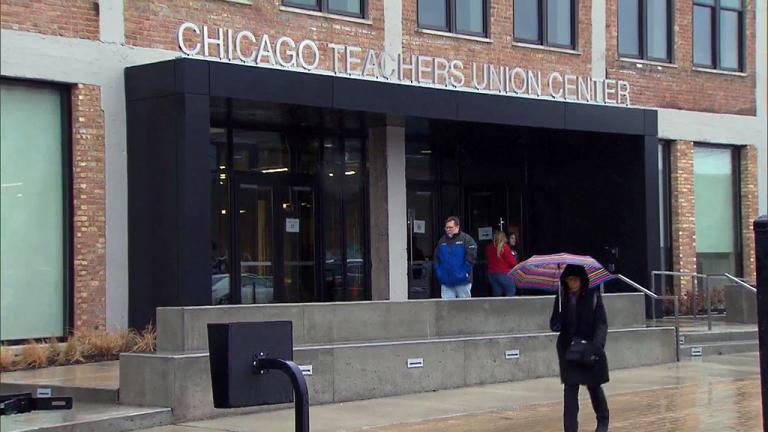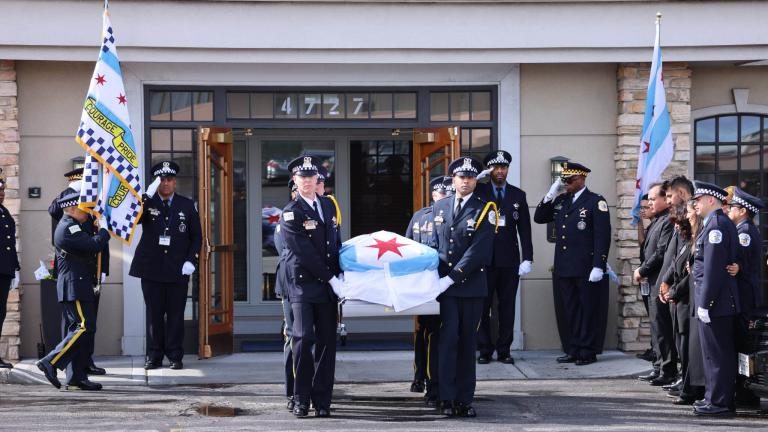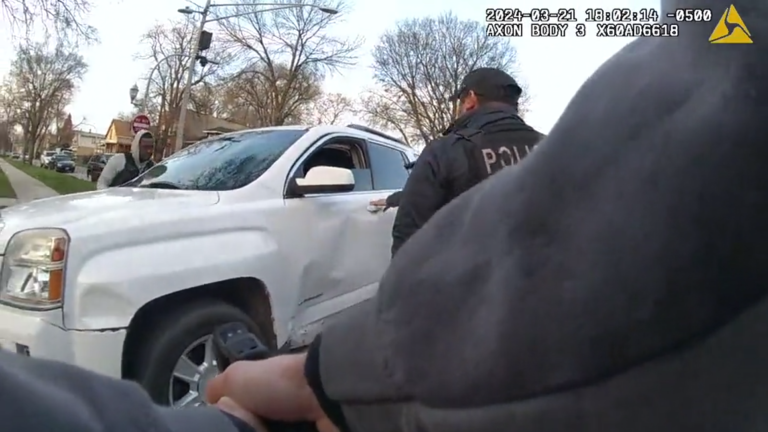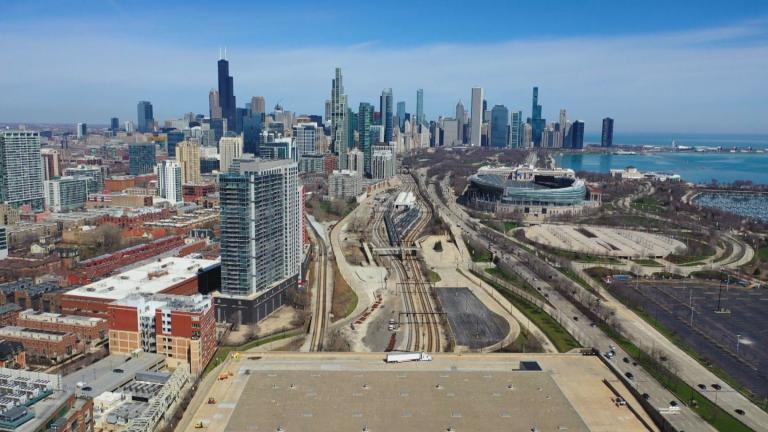Video: The WTTW News Spotlight Politics team discusses the Bring Chicago Home proposal and more of the day’s top news. (Produced by Emily Soto)
A measure that asks voters to give the Chicago City Council the power to hike taxes on the sales of properties worth $1 million or more to fight homelessness cleared the first hurdle Tuesday, with a comfortable majority of alderpeople endorsing the plan to put the proposal on the March primary ballot.
Meeting as the City Council’s Rules Committee, alderpeople voted 32-16 to advance the measure to the full City Council for a final vote, which could happen as soon as Wednesday. However, the measure will likely be delayed amid fierce opposition from business and real estate groups, whose leaders have warned it could cause the city’s already-struggling commercial real estate market to collapse amid the shift to remote work.
Farzin Parang, the executive director of the Building Owners and Managers Association of Chicago, said there is the equivalent of 16 Willis Towers of empty office space downtown. Parang said the measure is driven by a political push to “punish quote-unquote rich people” and would result in property tax hikes for all Chicagoans, increasing rents and worsening Chicago’s affordable housing crisis.
The measure advanced on Tuesday after surviving a series of parliamentary maneuvers deployed by opponents in an attempt to derail its progress, which Ald. Maria Hadden (49th Ward) called the “world’s slowest game of ping pong.”
“The voters of Chicago deserve to have a say,” said Hadden, the author of the measure that has been in the works since 2018.
However, supporters of the proposal, known as Bring Chicago Home, said city officials had a moral obligation to house as many vulnerable Chicagoans as possible to confront the growing number of unhoused Chicagoans. Wealthy residents of Chicago should pay their fair share, officials said.
The proposal would slash the real estate transfer tax paid by Chicagoans who sell residential and commercial properties for less than $1 million by 20%, while hiking taxes on transactions of more than $1 million by as much as 400%.
That would generate approximately $100 million annually, which supporters say would be enough to address the root causes of homelessness by building new permanent housing that offers wraparound services like substance abuse counseling in an effort to combat crime and poverty throughout Chicago.
An August report from the Chicago Coalition of the Homeless, a member of the coalition that crafted the Bring Chicago Home proposal, found that the number of Chicagoans who do not have a permanent home grew 4% between 2020 and 2021 to 68,440 people.
State law does not give the City Council the power to change the transfer tax on its own authority. Without legislation passed by the General Assembly and signed by the governor, the measure needs the support of Chicago voters through a referendum before the City Council can levy the tax and collect the funds.
Under the current law, the buyer of a home worth $300,000 pays the same flat transfer tax as the buyer of a multimillion-dollar mansion or downtown skyscraper — a fact that supporters of the change contend is unfair and contributes to income inequality in Chicago.
The seller of a home sold for $500,000 now pays $3,750 in real estate transfer taxes, a 0.75% tax rate. If voters pass the binding referendum set to be on the March 2024 primary ballot, and the City Council agrees to levy the tax, that cost would drop to $3,000, or a 0.60% tax rate, officials said.
Nearly 94% of all properties sold in Chicago have a final purchase price of less than $1 million, officials said.
The transfer tax on properties sold for more than $1 million would spike by 233%, but apply to just to the amount of the sale greater than $1 million, in an effort to ensure the measure withstands a legal challenge and reduces the incentive for sellers to artificially lower sale prices, according to the proposal.
For example, the seller of a property that sells for $1.2 million now pays $9,000 in transfer taxes. Under the revised proposal, that would rise to $10,000, with the higher tax rate of 2% applied to just $200,000 of the sale price, according to the proposal.
Using the same mechanism, the transfer tax on properties sold for more than $1.5 million would spike by 400% with the increase only applying to the amount of the sale greater than $1.5 million, according to the proposal.
Imposing a marginal tax, rather than a flat tax, would make the tax fairer, and ease the tax burden on two- to six-unit properties, both residential and commercial, supporters said.
Contact Heather Cherone: @HeatherCherone | (773) 569-1863 | [email protected]








